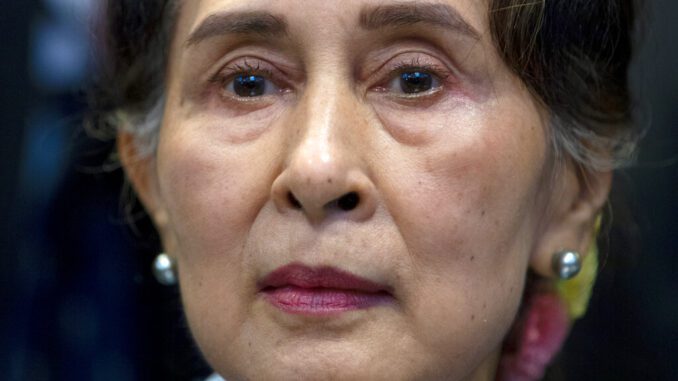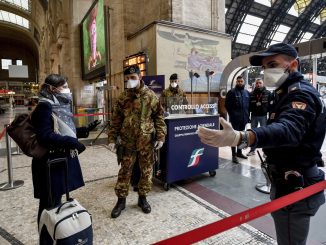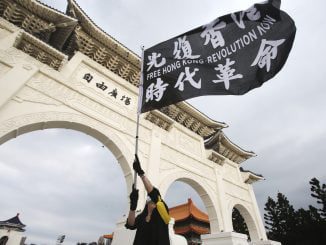
BANGKOK — A trial of Myanmar’s ousted leader Aung San Suu Kyi on corruption charges is set to begin on Oct. 1, a member of her legal team said Friday.
Lawyer Khin Maung Zaw said a judge declared the trial would be held at the Special Court in the capital Naypyitaw on every other Friday. He announced the decision after presentations in the court by Suu Kyi’s lawyers and prosecutors from the central city of Mandalay, where the charges were originally lodged.
Suu Kyi, whose elected government was overthrown by an army takeover in February, is currently being tried on other charges by the Special Court. In the ongoing trial, she faces charges of sedition, two counts of flouting COVID-19 pandemic restrictions, illegally importing walkie-talkies that were for her bodyguards’ use and the unlicensed use of the radios.
She also is due to be tried for breaching the official secrets law in a case that was transferred earlier this week to Naypyitaw from Yangon, Myanmar’s biggest city.
Suu Kyi’s supporters as well as independent analysts say all the charges against her are politically motivated and an attempt to discredit her and legitimize the military’s seizure of power while keeping her from returning to politics. Her lawyers deny any wrongdoing.
The army takeover was met with massive popular resistance, which is continuing despite harsh measures by security forces to quash it.
Suu Kyi, 76, has been charged in five cases under the anti-corruption law, four by the Mandalay Region High Court that will now be tried in Naypyitaw, and one by the Yangon Region High Court.
The Mandalay cases include two under Section 55 of the law, which states that a political post holder convicted of corruption is liable to up to 15 years’ imprisonment and a fine.
In the other two Mandalay cases, Suu Kyi was named a co-defendant with political colleagues, including former Naypyitaw Mayor Myo Aung, under Section 63 for allegedly conspiring to carry out corruption. It carries the same penalty.
Details have not been officially released about the Yangon case, for which a trial date has not yet been set.
On June 10, official media reported that the state Anti-Corruption Commission had found that Suu Kyi accepted bribes and misused her authority to gain advantageous terms in real estate deals. Suu Kyi’s lawyers already denied the allegations when they were first made in March.
Reports in state media including the Global New Light of Myanmar newspaper said the anti-corruption body had also found that Suu Kyi illegally accepted $600,000 and seven gold bars from the former chief minister of Yangon Region, a political ally.
The reports said the commission had found that Suu Kyi has misused her position to obtain rental properties at lower-than-market prices for a charitable foundation named after her mother that she chaired.
The reports said the action deprived the state of revenue it would otherwise have earned.
State television has presented videos of testimony by alleged witnesses to the payoffs in cash and gold, but there was no explanation of the circumstances in which the videos were made or evidence to back up what was said.



